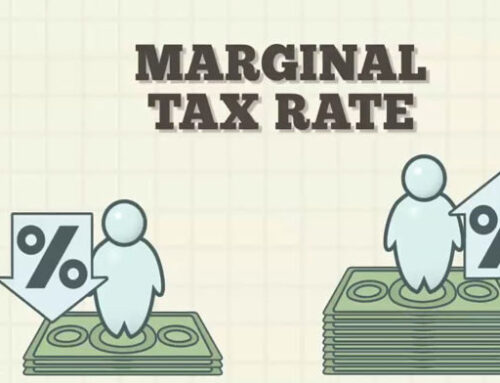The Importance of Tracking Deferred Revenue for SaaS Company
Accurately monitoring deferred revenue is of paramount importance for SaaS (Software as a Service) companies. By doing so, they can provide reliable financial statements and report their financial performance accurately to stakeholders. Deferred revenue refers to a liability that arises when a company receives payment for goods or services it has yet to deliver.
In the case of SaaS company, this typically involves customers making advance payments for subscriptions before services are rendered. Let’s explore four key reasons why tracking deferred revenue is crucial for SaaS companies:

The Significance of Tracking Deferred Revenue
- Accurate Financial Reporting/Revenue Recognition: Tracking deferred revenue allows SaaS companies to recognize revenue over time, aligning with the delivery of services. By accurately reporting revenue on their financial statements, SaaS company can provide reliable information about their financial performance in SaaS Company.
- Revenue Forecasting: Tracking deferred revenue enables SaaS companies to forecast future revenue. By understanding the committed revenue for upcoming subscription periods, companies can make informed decisions regarding investments, staffing, and growth.
- Performance Metrics: Deferred revenue serves as a valuable performance metric for SaaS companies. By comparing deferred revenue across different periods, companies can assess revenue growth rates, guiding strategic decisions related to marketing, sales, and product development.
- Investor Confidence: Investors often consider deferred revenue as a key metric when evaluating SaaS companies. A healthy balance of deferred revenue demonstrates a reliable revenue stream and predictable cash flow, instilling confidence in investors and potentially attracting more funding opportunities.
Approaches to Tracking Deferred Revenue:
- Manual Method: Tracking revenue-generating transactions in a spreadsheet, applying formulas to allocate revenue over the specific months of service provision. Creating a repeating journal entry in the accounting system can further automate the process in SaaS Company.
- Software Solutions: Integrating accounting systems like Xero or QBO with specialized apps like Flowrev to automatically populate revenue in the accounting system based on service periods.
- Online Tools: Leveraging tools such as Zapier to automate deferred revenue calculations and schedules in Google Sheets. Formulas can then be used to generate entries in the accounting system, ensuring accurate revenue and deferred revenue balances.

For SaaS company aiming to scale, understanding and properly accounting for deferred revenue is crucial for financial reporting and stakeholder management. Implementing effective systems and processes to recognize actual revenue earned is essential in evaluating sales growth. Should you have any questions regarding accounting for this often-overlooked key performance indicator, we are here to assist you.
In the fast-paced world of Software as a Service (SaaS), proper revenue recognition is crucial for financial stability and accurate reporting. Deferred revenue, also known as unearned revenue, represents income received for services not yet delivered. Ensuring its proper tracking is vital to comply with accounting standards and provide an accurate financial picture of your SaaS company. In this blog post, we’ll explore the importance of tracking deferred revenue and offer insights into best practices for managing it effectively.
Also Read: Are Gifts To Customers And Business Associates Deductible Expenses?
What is Deferred Revenue in SaaS?
Deferred revenue in the SaaS industry typically arises when customers prepay for subscription services or licenses. For example, if a customer pays annually for a one-year SaaS subscription, the revenue is recognized over the subscription period rather than all at once. This deferred revenue represents a liability on your balance sheet until the services are delivered in SaaS Company.
Why Proper Tracking Matters
- Compliance: Properly tracking deferred revenue is essential for adhering to accounting standards, such as the Generally Accepted Accounting Principles (GAAP) and International Financial Reporting Standards (IFRS). Non-compliance can lead to financial misstatements and potential legal or regulatory issues.
- Accurate Financial Reporting: Accurate financial statements are crucial for stakeholders, including investors, lenders, and potential acquirers. Deferred revenue affects your revenue recognition, and misreporting it can distort your company’s financial health.
- Cash Flow Management: Tracking deferred revenue helps you manage cash flow effectively. It provides visibility into future revenue streams and helps you plan for expenses, investments, and growth initiatives.

Best Practices for Tracking Deferred Revenue in SaaS
- Utilize Accounting Software: Implement robust accounting software that can automate revenue recognition processes. This software can help track deferred revenue, calculate revenue recognition schedules, and generate accurate financial reports.
- Segment Your Customer Base: Segment customers based on subscription type, billing cycle, and contract terms. This enables you to apply the appropriate revenue recognition method to each group, ensuring accuracy.
- Establish Clear Revenue Recognition Policies: Develop comprehensive revenue recognition policies that align with accounting standards. Ensure your team is trained to apply these policies consistently.
- Accurate Invoicing and Payment Processing: Implement efficient invoicing and payment processing systems to track payments and reconcile them with revenue recognition schedules in SaaS Company.
- Regular Reconciliation: Periodically reconcile your deferred revenue balances to verify their accuracy. Address any discrepancies promptly.
- Audit and Compliance: Conduct regular internal audits to ensure compliance with accounting standards and verify that deferred revenue is being recognized correctly.
- Documentation: Maintain thorough documentation of contracts, subscription terms, and revenue recognition schedules. This documentation is essential for audits and financial transparency.
- Forecasting and Planning: Utilize deferred revenue data to forecast future revenue, make informed business decisions, and plan for growth or expansion.
Conclusion
Properly tracking deferred revenue is a critical aspect of financial management for SaaS companies. It ensures compliance with accounting standards, provides accurate financial reporting, and supports effective cash flow management. By implementing best practices, utilizing accounting software, and maintaining clear policies and documentation, your SaaS company can navigate the complexities of deferred revenue effectively, offering stakeholders a transparent view of your financial health and stability.
Recent Posts
FAQ
How can software solutions assist in tracking deferred revenue for SaaS companies?
By integrating accounting systems such as Xero or QBO with specialized apps, SaaS companies can automate the process of populating revenue in the accounting system. This automation is based on the service periods, ensuring accurate tracking of deferred revenue.



